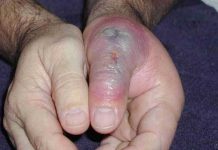Who taught you to get really clean?
With so many books on how to clean almost everything, why don’t any of them talk about our body? You can learn the proper technique for bathing and choosing hygiene products, to get down beneath the dirt and keep it from coming back. Keep yourself clean inside as well as out.
Bathing ProperlyGet back to basics.
Getting really clean involves first understanding what we are dealing with. There are all kinds of solvents, soaps, cleaning agents, scrubs, etc. for almost any kind of substance you might get on your body, but once that special circumstance is cleared, it’s back to basics. There are three basic things we need to clean when we wash.
Each part requires a different method of cleaning.First is the dirt and grunge that seems to stick to us from who knows where. Even sitting in a clean room still gets us dirty.Second is the dead skin cells that are constantly flaking off our skin.Third is the body oils under the skin, not just those on the surface.
Understand why we get so dirty, so you can tackle the cause. Dirt, grunge, filth, etc. that are on the surface of the skin tend to stick to us for two reasons. They generally have some cohesive power of their own and/or they mix with oils in our skin, which are always being secreted for protection from the environment. That’s why even dust getting on our skin will eventually seem like greasy mud.We have two types of body secretions – oil and water (sweat).
Those and the things that mix with them are best cleaned with a compound that breaks down the oils, makes them more soluble and allows them to be washed off easily. This is what soap is.Regardless of the additives for scent, cream, color, etc. the goal is to get the oils broken down and off the body. This is all there is to washing in most people’s minds, but they’re wrong.
Bathe less, but bathe better.
How often do you really need to take a bath or shower? No more than 3-4 times per week. While recent studies reveal that almost 60 percent of people shower every day, there’s some evidence that showering less can help your body improve its natural self-cleaning mechanisms more thoroughly.
The more effectively your body cleans itself, the healthier and cleaner you are, inside and out.The more you shampoo your hair, the more you strip it of natural oils, and the more often your body will have to produce those natural oils to make up for it. If you give yourself a shower break, you might find that you’re actually less greasy, oily, or smelly in the in-between periods.Some people will need to shower more regularly than others.
If you sweat regularly, or have excessively oily skin, for example, you may need to shower as many as two times a day, and use proper moisturizer. Everyone’s body is different.
Pick a good soap. What kind of soap? When you pick a soap, there are basically three things to look for. A good soap should remove dirt, cut through oil and grease, and rinse away without leaving a film behind.
Many different soaps may be appropriate for this purpose, from basic Dove or Ivory bar soap to handmade organic soaps.Some soaps leave more or less residue behind. A simple test is to take a clear glass pane, drinking glass, goblet, dish, etc (must be clear) and swipe a small amount of cold grease (bacon, fat, oil, etc.) across an area. Rinse with cool water. Use the soap bar/liquid soap to firmly rub a section of the grease smear off.
Rinse with clean water without scrubbing, or drying. Let air dry. Look through the glass and compare the unwashed grease with the soap cleaned section. A poor soap will leave a cloudy finish next to the grease.
A good soap will leave a clear finish. What’s left on the glass after the soap is left on your skin.Medicated shampoos and soaps are sometimes recommended for people with dry or flaky skin, while others may opt for natural or organic ingredients for optimum health.
Work on getting rid of the dead skin. Dead skin is the cause of most odors. Regardless of the advertising for antibacterial agents to kill odors, it’s a rare case where good clean hygiene doesn’t work wonders.
Think about your high school gym
. Remember the distinct aroma as you walked in? It came from the fermenting, decaying, skin and oils on the clothes left in the lockers. A moist environment with dead matter (skin cells) is a beautiful medium for bacterial growth and decay.Consider using an exfoliant scrub or loofah.
Exfoliant products usually have things like walnut shell, sugar, or other grainy ingredients that can be used to remove the dead skin from your body. They’re commonly available in body wash form, or in bar soap form. Loofah scrubs are like textured wash cloths that can be used to scrub your body and remove dead skin cells. They’re also bacteria traps, so it’s important to rinse them out thoroughly and change them regularly if you try to use one.
You can also learn to make up your own exfoliant scrubs or a basic sugar scrub. There are lots of different kinds of recipes, but a basic version involves mixing two tablespoons of sugar with enough olive oil and honey to get the consistency of toothpaste.
Consider the water temperature. For a deep clean, prefer a really hot shower or bath, since taking a cold bath or shower won’t touch the oil under the skin. You need to get your pores open and ejecting (secreting) their contents to clean them out. Bacteria can breed in your pores. Accumulation of oils can cause everything from acne to death by skin eating diseases.
The easiest way to open your pores is heat.
Exercise can do it because it will affect both sweat glands and the oil pores, but heat by itself is also effective. Taking a nice hot bath is excellent, but a quick hot shower is fine too.
Make sure it gets you sweating and opens your pores, allowing them to secret their contents.Be aware of going too hot, especially if you have dry skin. The best temperature to take a shower? It might be slightly lower than you think.
Excessively hot water, in excess of 120 degrees F (49 C) will dry out your skin and can cause long-term skin problems. Instead, try showering in water hot to the touch, but not burning.
Setting the water temperature to your body temperature defeats the purpose of opening up the pores in your skin. You don’t want to burn, but DO want to feel the heat and the beginning of sweat to clean those pores.
Consider ending your shower with a rinse of a minute or two in cool to cold water from the faucet. This helps to tighten up the skin and close the pores back up, which will keep them from trapping dirt and other grime you’ve washed off in the shower.
Wash the folds and pits of your body. Scrub your skin with a rough sponge or cloth that will help take off all the dead and dying skin cells. Be sure and rub everywhere twice, once while cleaning with soap and a second time when washing off during the final rinse.
Target your underarms, the areas behind your ears, under your jaw line and your chin, and behind your knees and the gaps in between your feet. The largest cultures of odor-causing bacteria breed in these areas. This is because of the sweat that gets trapped in the layers of the skin.
Make sure to wash these areas each time you bathe.Rinse your buttocks and your groin as well, then make sure you rinse properly. Soap trapped in these areas can cause irritation.Another consideration is to dry completely to the point where you are no longer secreting (sweating) from the hot cleaning before you dress.
If you’ve done a good thorough cleaning, the dampness that your clothes will absorb will dry with no or minimal odor. You are constantly sloughing off dead skin cells, but if you’ve just finished cleaning, there will be far less ending up in your clothes to begin to decay and embarrass you.
Steam your face before you shower.
Some people like to do detoxifying steams, and take very hot showers for this reason. This can be an excellent way of opening up your pores and getting the sweat flowing out of your body. Treat it as a separate ritual, however, from bathing.
Start your shower routine by steaming your face with a hot towel and a drop or two of some peppermint or tea-tree essential oil. This can be an excellent way of opening your pores and releasing toxins, without damaging your skin in the shower.
Shampoo and condition your hair 3-4 times per week.
Wet your hair thoroughly and apply about a quarter-sized amount of shampoo into your palm. Rub your hands through your hair, lathering the shampoo and massaging it into your scalp for 1-2 minutes. Make sure to work the shampoo in the hair behind the ears as that causes most oil to form. Then make sure you lather it up at the back of the head and then pull in the tips of your hair.
Everyone’s hair type needs a different level of moisture—the more moisture you need, the longer you should go between shampoos. Eventually, your body will recognize that it no longer needs an excessive amount of oil to hydrate your scalp.
Rinse the shampoo out thoroughly, running your fingers through the stands as you go. If your hair is still slippery, that means the shampoo isn’t out and your hair will get greasy over the next 24 hours. Repeat this process with conditioner, to strengthen your hair. Rinse it out completely.
Dry yourself thoroughly.
After your shower, make sure you dry your body with a clean, dry towel. Water that remains on your skin can cause irritation and chafing. Try to dry yourself as soon as possible after you’re done bathing.
Staying Clean and Healthy Clean your towel regularly.
What about that towel you use every time you bathe? How many times does it get used before it begins to stink?
It accumulates the dead cells and oils that were left over after a poor cleaning. Dealing with this takes a good scrubbing with a course sponge, washcloth, brush, or similar item. The key is to get as much of the loose and dying and dead skin cells along with the oils off before you use the towel.To keep your body as clean as possible, it’s important to wash your towel regularly and store it properly so it dries appropriately.
If you do a poor job of cleaning you’ll need to wash your towel after 2-3 uses.
Never just let a wet towel lay on the floor of the bathroom, or it will get mildewy and dirty quickly. It’s important to hang it up properly and allow it to dry completely.
Try using a mineral deodorant, instead of typical deodorant. Organic rock salt deodorant kills the bacteria that causes odor, and also helps cleanse your lymph nodes. When you first start using a mineral deodorant, you might have strong odor for 1 or 2 weeks, but don’t give up, because this means it is detoxing all the bacteria that has built up from using regular deodorant.To keep the odor under control while your body flushes the toxins, get some therapeutic-grade essential oils (Young Living or Doterra), such as lavender, rose, lemon, or purification blend, among many others to put directly on your armpits to reduce odor.
Moisturize your skin.
After every bath or shower, you may want to apply moisturizer to your skin to help keep it healthy. Even if you have oily skin, moisturizer needs to be used regularly to help to keep your skin hydrated. Commercial moisturizers usually contain some combination of natural lipids and other compounds that your body generates naturally. Look for water-based moisturizers.
Identify problem areas, like the heels of your feet, your elbows, and your knees, and apply moisturizer to those areas every night before bed. This can help to soften skin and improve its overall health.
Try regular face packs or masks.
Facial treatments like packs or masks can be used regularly throughout the week to clean and tighten the skin on your face. There are a variety of natural remedies and ingredients that can be used for a good face pack. Try the following:Use plain honey, lemon, milk, besan flour, green tea, and fresh fruits like papaya mango oranges sweet lime.You can also buy a face pack or mixture from the store. Read the ingredients to find out what’s used so you can mix one up yourself.
Try products that contain natural and organic ingredients. Body wash, shampoo, conditioner, facial cleanser, deodorant, and even makeup and hairspray can help promote a healthier body. When you put products on yourself that are full of toxins and harsh chemicals, it effects your health and your body’s ability to self-regulate.Consider using home alternatives. For some people, deep cleaning means avoiding commercial products all together and focusing on cleaning your body with gentler home remedies.
Instead of shampoo, you can use baking soda, apple cider vinegar, and warm water. If you’re interested in learning more home remedies, check out the following articles:How to Cleanse Your Body NaturallyHow to Have Clear Skin NaturallyHow to Make a Basic Homemade Facial ScrubHow to Make Homemade Shower GelHow to Make a Homemade Body WashHow to Make Your Own SoapHow to Make Shampoo
Keep clean inside as well as out.
It’s important to eat well and stay hydrated if you want to be clean on the inside as well as on the outside. Your diet has a direct impact on the health of your skin and your hair, meaning that good nutrition is part of a good cleaning regimen.
When you diet to lose weight you even loose some of important nutrients so don’t starve or cut down the carbs and fats completely.Try increasing the number of antioxidants in your diet. Drink green tea and eat tomatoes every day. Every morning, try eating basil leaves or soaked methi seeds on empty stomach, which are used as a common natural detox remedy.




























